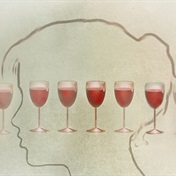Cape Town neurosurgeon Prof. Peter Rose-Innes says the reason a hangover makes you feel bad is simply because alcohol is a toxin: “It affects brain cells, the connections between them, and muscle fibres.
“That’s why you have a headache and the shakes the next day. Depending on how much you’ve had to drink, the other well-defined symptoms can include tremors, visual and auditory hallucination, amnesia, mental confusion, restlessness, volubility (being talkative), a disrupted sleep-wake cycle, and increased heart rate.”
DehydrationBecause alcohol is a diuretic, it causes your kidneys to excrete water and electrolytes, leaving you dehydrated, Prof Rose-Innes says. You also lose the chemicals vital to proper nerve function, leaving you feeling shaky, dizzy and generally miserable. Fluid is expelled from your bloodstream into your intestinal tract, leading to diarrhoea and dehydration.
So what’s enough? How much booze is safe? Prof Rose-Innes explains: “Alcohol is measured in units; one glass of wine or sherry, or half a pint of beer equals a unit.
“Any more than 21 units per week for men or 14 per week for women is too much. The precise limits can depend on your size, but that’s a good benchmark.”
Permanent damageHe adds that the UK’s legal limit provides a good rule of thumb: more than three units in an evening is reaching the danger zone.
And if you’ve partied hard in the past and don’t remember your years as a student, how much damage might you have done? Prof Rose-Innes says: “The hard answer is that if your drink enough to have a hangover at any time it will damage you, but a hangover once or twice a year won’t leave any detectable damage.”
The danger, he warns is that people who often have hangovers are the ones most likely to become problem drinkers or alcoholics. The dreaded DTs, or delirium tremens – the hallucinations and uncontrollable shaking seen in full-blown alcoholics – is a form of hangover that’s simply there to stay.
Prof Rose-Innes has a word of warning for the time-honoured idea of having a drink in the morning to help stave off a hangover: “It’s a classical symptom of someone who’s in danger of developing a drinking problem.”
He says it adds insult to injury, dulling nerves already sensitised by alcohol. Prof Rose-Innes suggests drinking plenty of water and having something to eat to help the body recover.
William Smook for Health24



 Publications
Publications
 Partners
Partners














